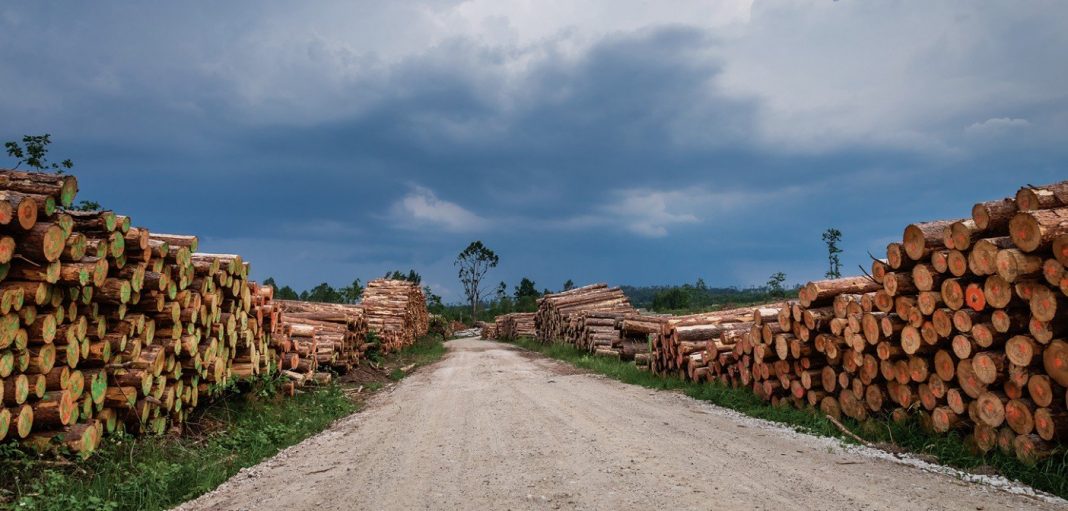While only a first step, the recently announced reductions in tariffs on wood and paper products to China has been welcomed by the local forestry industry.
The announcement China will eliminate tariffs on 12 additional wood and paper exports worth $36 million is viewed as a step in the right direction. But is only the first in a process also requiring subsidies on Chinese domestic processors to be lifted.
At this stage, the reduction is estimated to save about $2 million in tariff costs across 15 export product lines.
It is a very welcome step, but there is a lot more to be done yet around subsidies to wood processors in China and other countries.”
– Brian Stanley
A large portion of trees harvested in Bay of Plenty are exported as whole logs, accounting for about 60 percent of the Port of Tauranga tonnage. Since 2010, the log harvest in Bay of Plenty has increased by about 2.5 million cubic metres a year and continues to largely be exported as logs to China.
Year on year to the end of September, export values of logs to China were up nine percent, and contributed to total log exports growing two percent across all markets. India is New Zealand’s second-largest market, up four percent year on year.
The log trade recently underwent a major slump in values, losing three years’ of value gains in only one week, before making some recovery to the top 85th percentile for the past five years.
But the slump highlighted New Zealand’s vulnerability. It is reliant upon logs, and faces strong competition from countries in northern Europe and Russia also vying for the Chinese export log trade. And they have proximity in their favour.
Forestry and wood processing are the second-largest employment source in Rotorua after tourism, contributing to 15 percent of the region’s economy
The wider Bay of Plenty region is set to provide the largest single regional supply of uncommitted forest harvest for the next 25 years and represents 40 percent of the country’s plantation harvest area.
Likely beneficiaries
Brian Stanley, chair of the Wood Processors and Manufacturers Association, said the biggest beneficiary of the tariff reduction would probably be the Kinleith mill at Tokoroa, with its pulp and packaging products. The Tasman mill at Kawerau would also gain some benefit from the tariff reduction to its pulp product.
Both mills are owned by Japanese company Oji Fibre Solutions.
“The reductions apply mainly to cardboard and packaging products, rather than processed wood products,” said Stanley.
“It is a very welcome step, but there is a lot more to be done yet around subsidies to wood processors in China and other countries.”
Forest Owners Association president Peter Weir said overall the change in tariffs would largely impact on processed timber and paper products, rather than on logs.
These were already set at zero tariff in the original Free Trade Agreement, and remain fine, he said.
David Rhodes, FOA chief executive, said the sector’s $509 million a year in processed timber sales to China could ultimately prove to be a lot more, were it not for residual tariffs that discourage exporters of processed timber.
“Two of our next two major export markets, Australia and Japan are dominated by further processed exports. Paper and paperboard for Australia, and wood panels for Japan,” said Rhodes.
It would be some time before China became a similar market, but the Chinese government had at least given a clear signal to New Zealand it had no issue with processors in New Zealand expanding their exports to China, adding another 12 categories to the 48 already under reduction through the original 2008 Free Trade Agreement.
Rhodes said the industry would like to see tariffs taken off the final one percent of the export trade.
“But I am sure the momentum is in that direction, it is only a matter of time before all the tariffs are gone.”
Rhodes said he was confident more processing in New Zealand would create more jobs and give processors more confidence they have market access with fewer tariffs.
















